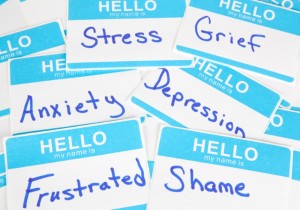 This past Wednesday marked the sixth annual Bell Let’s Talk Day, a public awareness campaign designed to break the silence around mental illness across Canada. This leads me to speak of several recent student submissions to the Obiter. We received powerful and deeply personal stories about mental illness whose authors requested that their names not be published. As a result, a number of complications revealed themselves from a nexus between responsible journalistic standards and an individual’s right to privacy. From the Associated Press to the New York Times, journalistic standards have traditionally condemned the use of anonymous bylines citing the readers’ right to transparency of information and the authors ought responsibility to be accountable for the words published. Our editorial board was compelled to seriously consider whether exceptions to this long-standing policy ought be permitted under special circumstances that include mental health issues. In taking a broad perspective, the issue here is much larger than whether or not publishing articles under anonymous bylines is an acceptable practice. For me, this question points to a much larger problem that pervades the attitudes constituting our profession.
This past Wednesday marked the sixth annual Bell Let’s Talk Day, a public awareness campaign designed to break the silence around mental illness across Canada. This leads me to speak of several recent student submissions to the Obiter. We received powerful and deeply personal stories about mental illness whose authors requested that their names not be published. As a result, a number of complications revealed themselves from a nexus between responsible journalistic standards and an individual’s right to privacy. From the Associated Press to the New York Times, journalistic standards have traditionally condemned the use of anonymous bylines citing the readers’ right to transparency of information and the authors ought responsibility to be accountable for the words published. Our editorial board was compelled to seriously consider whether exceptions to this long-standing policy ought be permitted under special circumstances that include mental health issues. In taking a broad perspective, the issue here is much larger than whether or not publishing articles under anonymous bylines is an acceptable practice. For me, this question points to a much larger problem that pervades the attitudes constituting our profession.
There is somewhat of a cognitive dissonance in law school where mental health issues such as addiction, obsessive-compulsive disorder, and perfectionism are viewed to be strengths while others are deemed to be signs of weakness. We are surrounded by a culture where alcoholism, drug abuse, and questionable—or an entire lack of—ethics are more readily embraced than anxiety, depression, or more serious mental health issues. Despite the likelihood that an overwhelming majority of students have experienced these afflictions at some point during their legal studies, a cloak of secrecy continues to impede the possibility of engaging in an honest discourse about the pervasiveness of this problem. This shroud leaves many students with the impression that to speak openly about suffering from a mental health issue is akin to ending your legal career before it even begins. This fear of being viewed as damaged goods to the partners on Bay street leaves students choosing to suffer in silence, fearing the consequences that their words might bring them. And many of those that choose to speak out only do so under the protection of anonymity.
While it’s true that this is a profession that is known to be arduous and demanding on its members, I don’t believe that gives a justification for perpetuating the “tough-as-nails” stereotype of what a lawyer is expected to be. The mere fact that some students might experience panic attacks as a result of the overwhelming stress that law school brings doesn’t make them weak—it makes them human. For those students struggling with the challenges associated with mental illness, the battle alone can leave them feeling like victims. Furthering the stigma associated with mental illness only serves to create a hostile environment in which sufferers who speak out are left feeling victimized yet again. So when the Obiter is approached by students insisting that they remain anonymous when speaking out about their stories, I immediately become concerned about a perceived attitude of shame toward the challenges these students face.
I’ve been accused of being an idealist on a number of different occasions and so with that, I accept that my views on life might be imbued with a certain naivete. That being said, the fact that the Obiter continues to receive these kinds of requests saddens me. To be clear, my dismay is not with the students or their requests—it is at the very fact that they felt the need to make such a request in the first place. It is somewhat disappointing to see that we have yet to create a culture of acceptance and support where these students feel safe to speak openly with their colleagues about their experiences. Given the increase in student submissions relating to mental illness, it is clear that this is an issue of significant importance to many that deserves a more candid discussion amongst willing participants. I find it hard to believe that there isn’t a single one of us whose life hasn’t been impacted in some way by mental illness. For myself, I have two younger sisters with autism and another diagnosed with schizophrenia. Given my family history, I consider myself lucky leaving law school having only suffered from anxiety and depression. That’s my story and I’m happy to share it. Now what’s yours?
